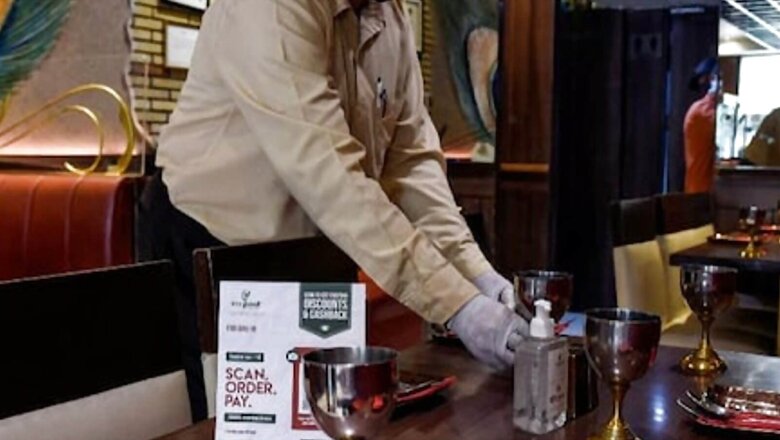
views
The Department of Consumer Affairs has observed that restaurants levying service charge from customers as the practice is an “unfair trade practice”. The government will soon come out with a legal framework to stop restaurants from levying it.
After a meeting with representatives of associations of restaurants as well as consumers, Consumer Affairs Secretary Rohit Kumar Singh said on Thursday that although restaurant associations claim the practice is legal, the Department of Consumer Affairs is of the view that it adversely affects the rights of the consumers and it is an “unfair trade practice”.
“We will soon work on a legal framework because there were guidelines of 2017 which they have not enforced. The guidelines are not generally legally enforceable,” he told PTI.
The meeting was attended by representatives of National Restaurant Association of India (NRAI), Federation of Hotel & Restaurant Associations of India (FHRAI) and consumer organisations, including Mumbai Grahak Panchayat and Pushpa Girimaji.
A legal framework will be legally binding on them to stop this practice. Usually, consumers get confused between service charge and service tax and end up paying, he noted.
What Did Restaurant Bodies Say
During the meeting, major issues raised by consumers on the Department’s National Consumer Helpline relating to service charge such as compulsory levy of service charge, adding the charge by default without express consent of consumer, suppressing that such charge is optional and voluntary, and embarrassing consumers if they resist paying such charge etc. were discussed.
Further, guidelines on fair trade practices related to charging of service charge by hotels/restaurants dated April 21, 2017 published by the Department were also taken up.
The restaurant associations observed that when service charge is mentioned on the menu, it involves an implied consent of the consumer to pay the charge. Service charge is used by restaurants/hotels to pay the staff and workers and is not charged for the experience or food served to consumer by the restaurant/hotel, they contended.
However, consumer organisations observed that levying service charge is patently arbitrary and constitutes an unfair as well as restrictive trade practice under the Consumer Protection Act. Questioning the legitimacy of such charge, it was highlighted that since there is no bar on restaurants/hotels on fixing their food prices, including an additional charge in the name of service charge is detrimental to the rights of consumers.
April 2017 Guidelines
As stated in the April 21, 2017 guidelines, placing an order by a customer amounts to his agreement to pay prices in the menu along with applicable taxes. Charging for anything other than the aforementioned, without express consent of the consumer, would amount to unfair trade practice under the Act. Further, considering entry of a customer to a restaurant/hotel as an implied consent to pay service charge would amount to imposition of an unjustified cost on customer as a condition precedent to placing an order for food and would fall under restrictive trade practice under the Act.
Provisions of Consumer Protection Act, 1986
According to the guidelines, a tip or gratuity paid by the customer for the service they received is beyond the basic minimum service. Charging for extra money over the prices mentioned on the menu card and/or restricting the customer’s entry or forcing him/her to pay the service charge as a pre-condition to placing the order would amount to unfair trade practice. Customer’s entry into the premises should also not be automatically considered as his/her consent to pay a fixed amount of service charge.
In any such case, the customer can approach a Consumer Disputes Redressal Commission/Forum (of appropriate jurisdiction) and is entitled to be heard and redressed.
Back in 2017, the then Food and Consumer Affairs Minister, Ram Vilas Paswan, who passed away in 2020, tweeted, “The service charge being taken from the consumer in the hostels and restaurants mandatorily has been declared illegal.”
Read all the Latest India News here
















Comments
0 comment